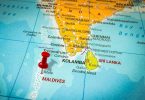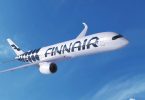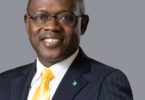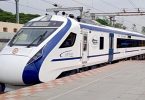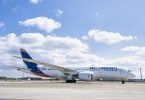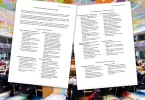(eTN) – While I have been at inaugural events before, I have never been to one for an airline. Orchestrated by Lufthansa (the parent company for Austrian Air) a group of journalists and public sector c-suite executives were invited to Newark Airport to herald the arrival of the new aircraft. Among the welcoming VIPs was Dr. Georg Heindl the Consul General for Austria in New York who commented that the economic ties between the US and Austria are growing and, “…it is significant and timely that, with the Newark flight, a new artery of exchange is established.”
In his capacity as the Austrian Consulate General in New York, Heindl is responsible for 17 US states plus Bermuda. His multiple responsibilities include assisting US residents traveling to Austria and facilitating the issuance of passports and visas.
Heindl brings a wealth of international diplomatic experience to his New York position. After leaving the military (1981) he became an attorney and entered the Austrian Foreign Service. He has been stationed in Senegal, Moscow, London, Vietnam and currently serves as Consul General in New York.
Austria is Prosperous
The country Heindl represents is considered one of the 12th richest in the world (based on GDP). It has a well-developed social market economy and a high standard of living. In 2012, Forbes listed Austria as having a per capita GDP of approximately US$39,761.
Austria is a member of the European Union and is attracting foreign investors who find the destinations’ access to the EU and geographical proximity to aspiring European economies very convenient. The World Economic Forum also finds Austria a very attractive location for doing business. With little crime and few foreign currency regulations, it offers investors a stable government.
The Travel and Tourism Competitiveness Report (2013) found that the robust tourism performance could be attributed to a strong infrastructure, good customer service, a safe and secure environment, and a wide variety of cultural experiences. Concerned with sustainability, the country ranks sixth in overall performance on this issue.
Happy Tourists
The Austrian tourism budget for 2014 is approximately US$67 million as international tourism is an important facet of the economy. This industry contributed 12.5 percent to the economy in 2010, 14.6 percent to the GDP in 2012 and is expected to grow to 15.4 percent by 2020. Every sixth Euro earned in Austria is related to tourism and leisure activities with approximately one-third of tourist expenditures related to accommodations ($38.4 billion). A large job generator, more than 300,000 employees work in the industry.
Source Markets
In 2012, Vienna’s top 10 tourism source markets included Germany, Austria, Italy, Russia and the US. The capital city also saw strong growth in the number of visitors from China, Turkey, Saudi Arabia, the United Arab Emirates and other Arab and Asian markets – accounting for more than 12 million overnight stays.
Approximately half of all visitors come from Germany, followed by Netherlands and Switzerland. There is a new focus on emerging markets, encouraging visitors from Central and Eastern Europe (i.e., Poland, Hungary and Czech Republic), as well as Russia, China, the Middle East, India and Brazil. In 2012, Austria counted 420 hotels that were running at 69.7 percent occupancy at an ADR of US$126.19.
Forecast
Although Austria tourism has been successful, there is growing concern that its popularity may be facing challenges. It is not an inexpensive destination and cheaper skiing areas in Eastern Europe are siphoning off some of the business. Tourists to the country are getting older and the younger market is not finding the locale as attractive as their parents and grandparents.
While tourism numbers are actually increasing, visitors are spending less, decreasing the value of the average overnight experience. The amount of time spent in Austria is also declining and there is a noticeable shift from rural to urban holidays.
Potential Conflict of Interests
There is a need to diversify the tourism product. Some projects are likely to focus on Adventure Tourism; however, this sector may create conflicts between the different user groups (i.e., horse riders, cyclists and hikers). In addition, outdoor adventure seekers may clash with conservation groups and off-piste skiers may have different interests than back-country skiers or those who prefer snow-shoeing and mountain biking.
No Easy Answer
According to Michael Gigl, the Director of the Austrian Tourism Office, North America and Australia, the newest marketing campaign, Austria. Moments of Bliss, will concentrate on the broad opportunities offered visitors.
While there is agreement that Austria is a very desirable locale for economic development, global trade and international tourism, continued growth and expansion will require the sensitivity and expertise and cooperation of both the public and private sectors.
For additional information: www.austria.info
(eTN): Austrian links to US via Newark | re-post license | post content



